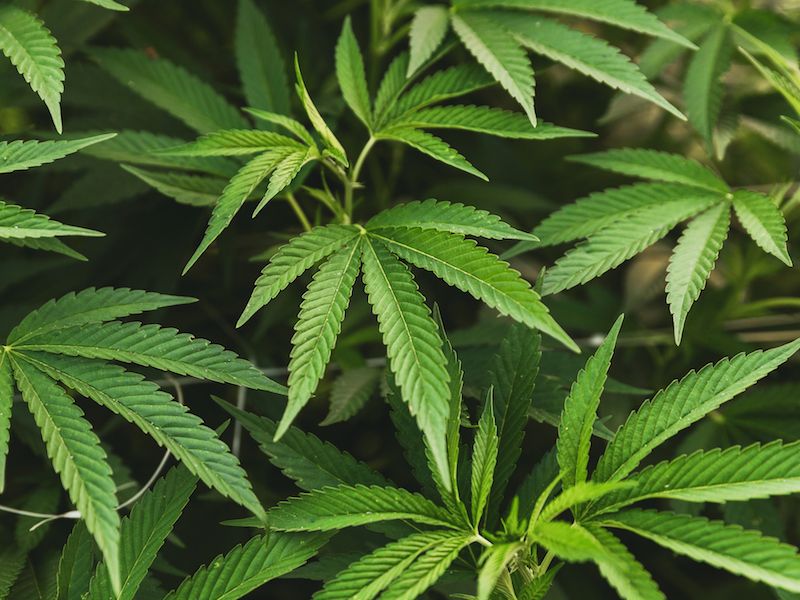
Public opinion surrounding cannabinoids and marijuana have changed incredibly in the last few decades. THC, cannabinoids, and even marijuana are legal for medical application in the majority of states. A decade ago it would have been unimaginable for marijuana to be legal for recreational use but some states have even taken this step.
Cannabinoids are classified as a group of compounds derived from the cannabis or marijuana plant. New things are being uncovered about cannabinoids all the time in spite of their recent legalization in some states. While we now are beginning to accept the countless medical positive aspects of these chemical substances, it has been acknowledged for a while that tinnitus might be activated by cannabinoids.
Many Forms of Cannabinoids
There are many forms of cannabinoids that can be used now. It’s not just weed (or refer, or grass… look, let’s just all agree right now that marijuana has many nicknames and move on). Oils, mists, pills and other forms of cannabinoids are currently obtainable.
Every state has it’s own laws regarding which types of cannabinoids you can purchase, and many of those varieties are still technically illegal under federal law if the amount of THC is more than 0.3%. That’s the reason why many people tend to be very cautious about cannabinoids.
The concern is that we don’t yet grasp much about some of the potential side effects or risks of cannabinoid usage. A good example is the new insight about how cannabinoids impact your hearing.
New Research Into Cannabinoids And How They Affect Hearing
A large number of illnesses and medical conditions are thought to be improved by cannabinoids, regardless of what you want to call it. Based on information that is anecdotally available, conditions such as Nausea, seizures, vertigo, and countless more seem to be improved by cannabinoids. So could cannabinoids help with tinnitus? That’s just what researchers decided to find out.
Tinnitus might actually be caused by cannabinoid use, as it turns out. Based on the research, more than 20% of study participants who used cannabinoid products reported hearing a ringing in their ears. And that’s in individuals who had never experienced tinnitus before. Additionally, marijuana users were 20-times more likely to report experiencing tinnitus symptoms after 24 hours.
Added research suggested that marijuana use could exacerbate ear-ringing symptoms in people who already deal with tinnitus. In other words, there’s some very persuasive evidence that cannabinoids and tinnitus don’t really mix very well.
How Cannabinoids worsen tinnitus
There are a couple of concrete ways in which cannabinoids can cause your tinnitus to get worse. The first is that your tinnitus can happen more frequently. Cannabinoids can also make those tinnitus episodes more intense. More intense ringing that can be harder to dismiss can be the result.
Cannabinoids have also been demonstrated to lead to the onset of tinnitus symptoms. Or, stated another way: after you start using cannabinoids you may develop tinnitus symptoms even if you had no symptoms before.
It’s Still Not Clear What Causes Tinnitus
Just because this connection has been discovered doesn’t inevitably mean the underlying causes are all that well understood. That cannabinoids can have an impact on the middle ear and on tinnitus is fairly clear. But what’s causing that impact is far less clear.
But we know that marijuana use, in contrast to other mood altering substances like alcohol, can cause tinnitus.
Research, undoubtedly, will continue. People will be enabled to make a practical choice concerning which of the many forms of cannabinoid to go with as we obtain deeper insight into their link to tinnitus.
The Miracle Cure Beware
In recent times there has been a ton of hype created around cannabinoids by marketers. Partly, that’s because of changing perceptions surrounding cannabinoids themselves (and, to an extent, is also an indication of a desire to turn away from opioids). But this new research makes clear that cannabinoids can and do bring about some negative consequence, specifically if you’re worried about your hearing.
You won’t be able to avoid all of the cannabinoid enthusiasts and evangelists in the world, the marketing of cannabinoids has been very aggressive.
But cannabinoids and tinnitus are clearly associated based on this research. So no matter how much advertising you see for CBD oils, if you’re concerned about tinnitus, you should most likely avoid them. The connection between tinnitus and cannabinoids symptoms has been quite securely demonstrated by the research, so it’s worth being careful.
